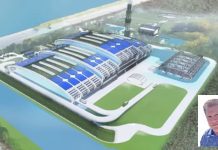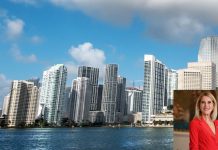
Improvements in 2018 include a pilot program focused on cost-effective ways of undergrounding neighborhood power lines and to enhance reliability and resiliency
Florida Power & Light Company (FPL) today announced that its ongoing efforts to improve service reliability continue to pay dividends for its nearly 5 million customers, ranking it among the best of all major energy companies in Florida in 2017 based on performance data recently filed with the Florida Public Service Commission.
The average amount of time that an FPL customer experienced an outage was less than ever before, thanks in part to the investments FPL has made to the energy grid since 2006. The company also achieved best-ever performance for the average number of momentaries or flickers experienced by each customer. FPL was named the winner of the 2017 ReliabilityOne™ Award for Outstanding Reliability Performance in the Southeast U.S. for the fourth consecutive year by PA Consulting Group, demonstrating its continued efforts to improve reliability.
“We continue to build a stronger and smarter energy grid to provide our customers with reliable service year-round while keeping our typical residential bills among the lowest in the nation,” said Eric Silagy, president, and CEO of FPL. “Our ongoing investments in strengthening the grid and using advanced smart grid technology continue to help us deliver electricity our customers can count on in good weather and bad. This was never more evident than during our restoration efforts in the wake of recent hurricanes, during which we responded much quicker and more efficiently when compared to Hurricane Wilma – the last major storm to impact our service area.”
The company’s investments include strengthening power lines and installing smart grid technology, which helps make the grid more storm-resilient. In addition, these investments sped restoration efforts during last year’s Hurricane Irma, one of the most devastating hurricanes to ever affect Florida. These investments:
- Helped avoid 546,000 customer interruptions with smart grid switches;
- Restored 50 percent of customers or more than 2 million customer accounts within one day, compared with five days after Hurricane Wilma;
- Replaced 4,600 damaged poles, compared with 12,400 after Hurricane Wilma; and
- Re-energized all substations in one day, compared with five days after Hurricane Wilma.
These investments made by the company since 2006 include the following enhancements to the grid:
- Hardening more than 860 main power lines serving critical community facilities and services, such as police and fire stations, hospitals, ports and 911 centers;
- Clearing vegetation – a major cause of power outages – from more than 15,000 miles of power lines each year;
- Inspecting all of the company’s 1.2 million power poles within an eight-year cycle, and upgrading or replacing those that no longer meet FPL’s industry-leading standards for strength (approximately 150,000 poles inspected annually); and
- Installing more than 4.9 million smart meters and 90,000 intelligent devices to help predict, reduce and prevent power outages, and restore power faster if outages occur.
During 2018, the company plans to begin a pilot program that is part of the hardening of the energy grid that FPL has undertaken since 2006. The pilot program will focus on less expensive ways to underground even more neighborhood power lines to further enhance the reliability of service to customers and enhance the resiliency of the energy grid. Historically, FPL has seen that, on average, customers served by underground main power lines tend to have fewer outages compared to overhead main power lines. About 40 percent of FPL’s 68,000 miles of distribution power lines are underground.
“In the aftermath of Hurricane Irma, we saw that the top causes of outages were trees falling and debris blowing into our power lines, much of which was outside of FPL’s easement or public right-of-way,” said Manny Miranda, FPL senior vice president of power delivery. “We are identifying additional overhead neighborhood power lines that we can underground to help us enhance service reliability and reduce outages from trees, wind-blown debris, and lightning.”






